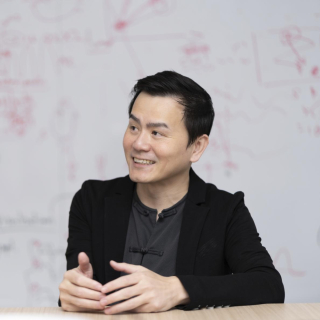The End of Consciousness

Description
Hakwan Lau studied philosophy and cognitive science in Hong Kong, where he was born and grew up. Upon finishing his undergraduate degree, a Rhodes Scholarship supported his doctoral studies at Oxford University. After postdoctoral training at the Wellcome Centre for Neuroimaging at University College London, he taught at Columbia University in New York, as well as University of California, Los Angeles (UCLA). In 2022, he left his permanent position at UCLA and started a new research group at the Riken Center for Brain Science in Japan. He is the author of In Consciousness We Trust: The Cognitive Neuroscience of Subjective Experience (Oxford University Press, 2022).
Abstract
Once ridiculed, the science of consciousness has grown substantially over the past 35 years. However, a central conceptual confusion remains: We systematically conflate the target theoretical notion of consciousness - in the sense of having subjective experience - with the everyday and clinical notion of having the capacity to respond meaningfully to external stimuli. Early on, philosophical analysis has helpfully clarified this issue. I will describe some research in my lab which, following that tradition, aimed at tackling these problems experimentally. However, paradoxically, in recent years we have also seen considerable regression, as the relevant concepts became actively lumped together again. For example, in the cases of AI and animal consciousness, views that are evidently inconsistent or unscientific have been fervently promoted to the general public. Instead of trying to hold individual researchers accountable, I highlight that these are just the inevitable consequences of the uniquely problematic funding mechanisms adopted by this field, which are at this point largely biased towards populism over serious academic evaluations, unfortunately. The said conceptual confusion, despite being quite obvious, benefits certain kinds of theories, and accordingly they form powerful allies. One likely consequence is that some of the best work on consciousness may no longer explicitly carry the label ‘consciousness’ - a trend that is already beginning to be seen in both science and philosophy today.
This lecture will be streamed on Zoom.
